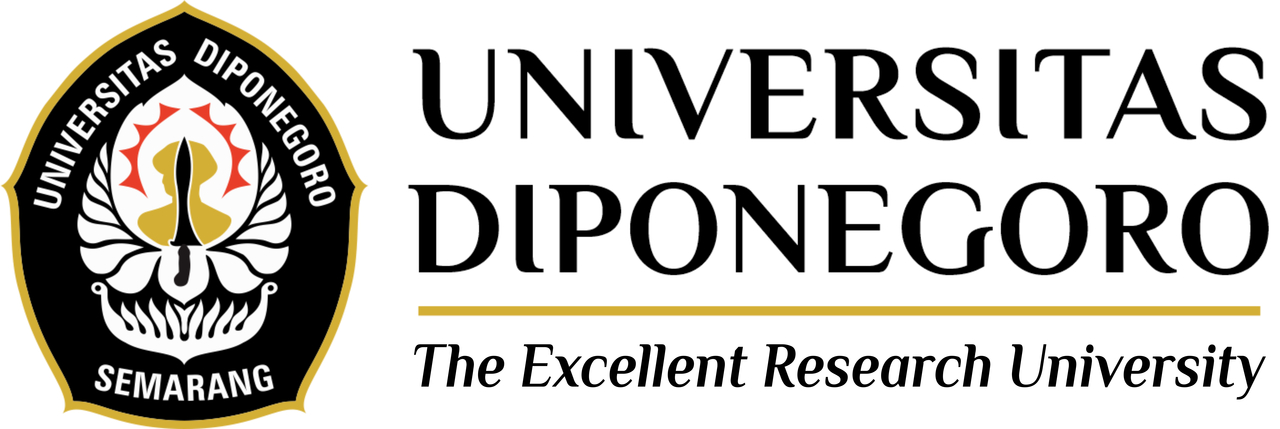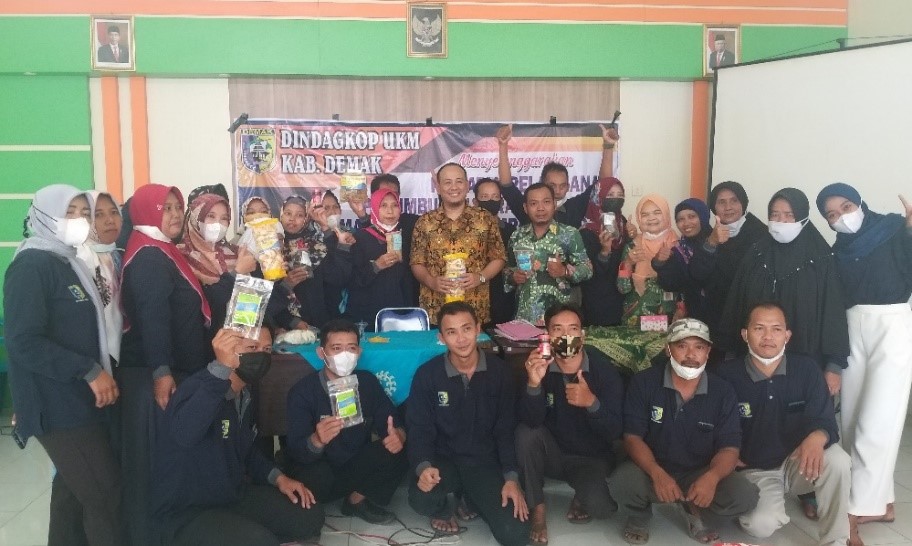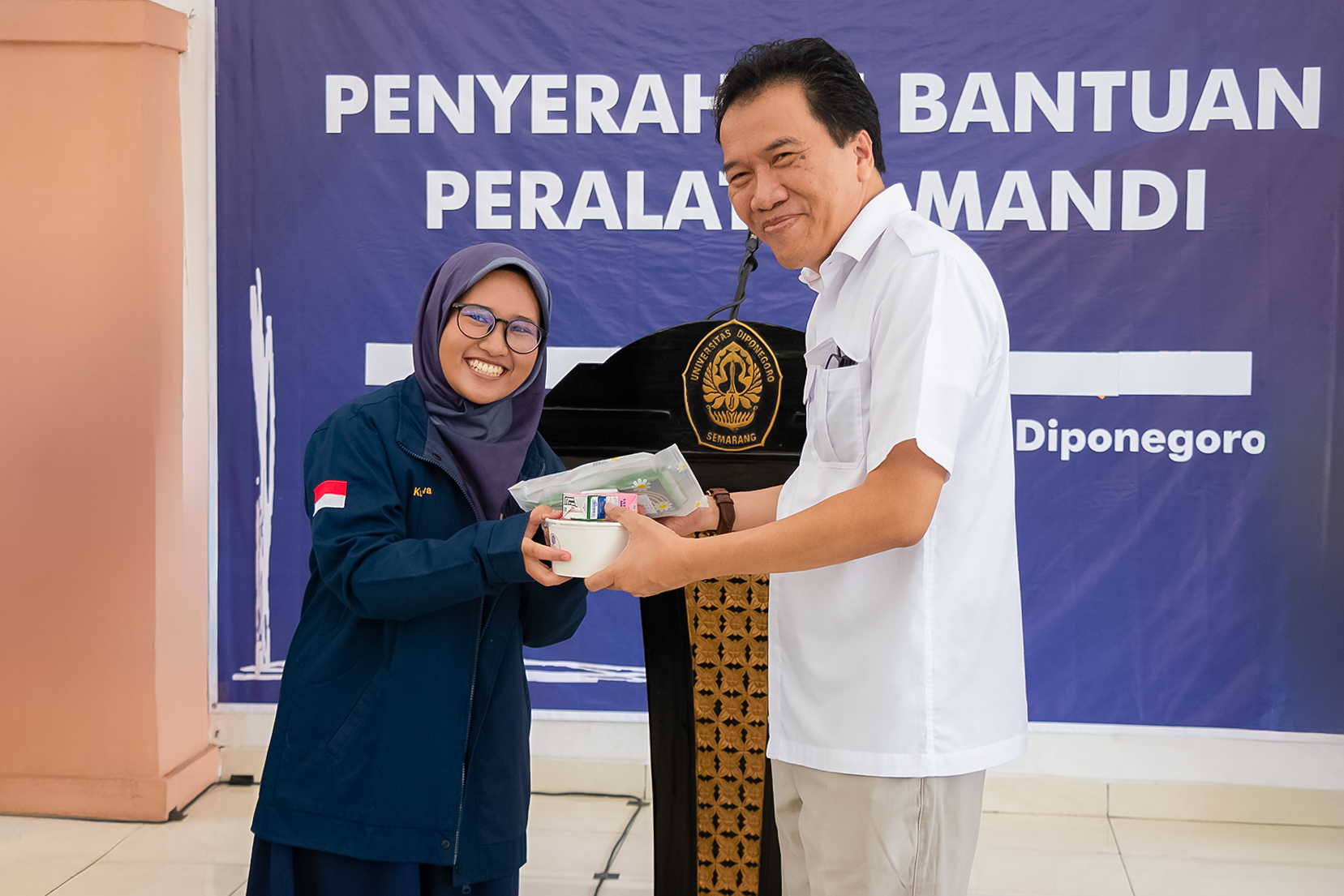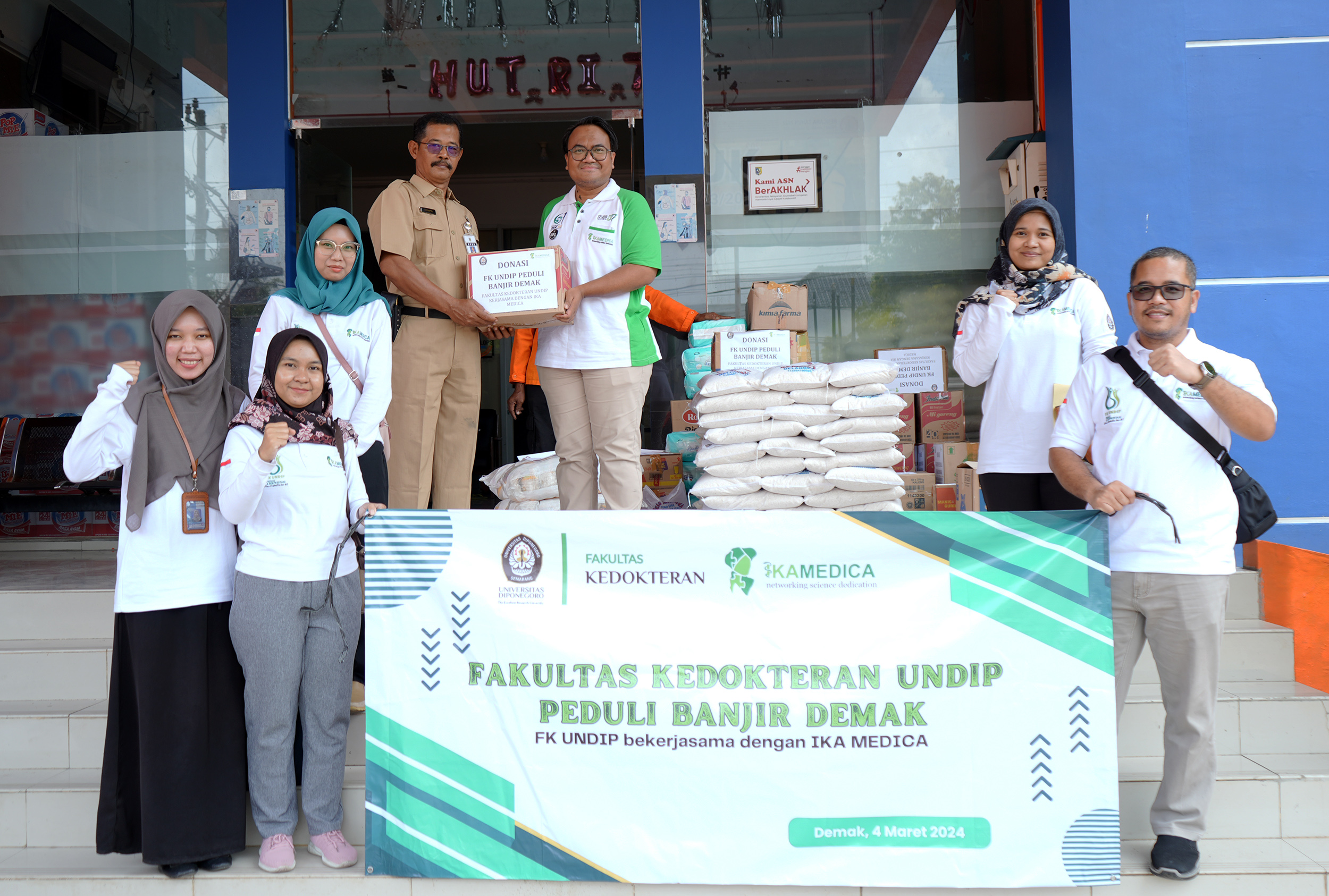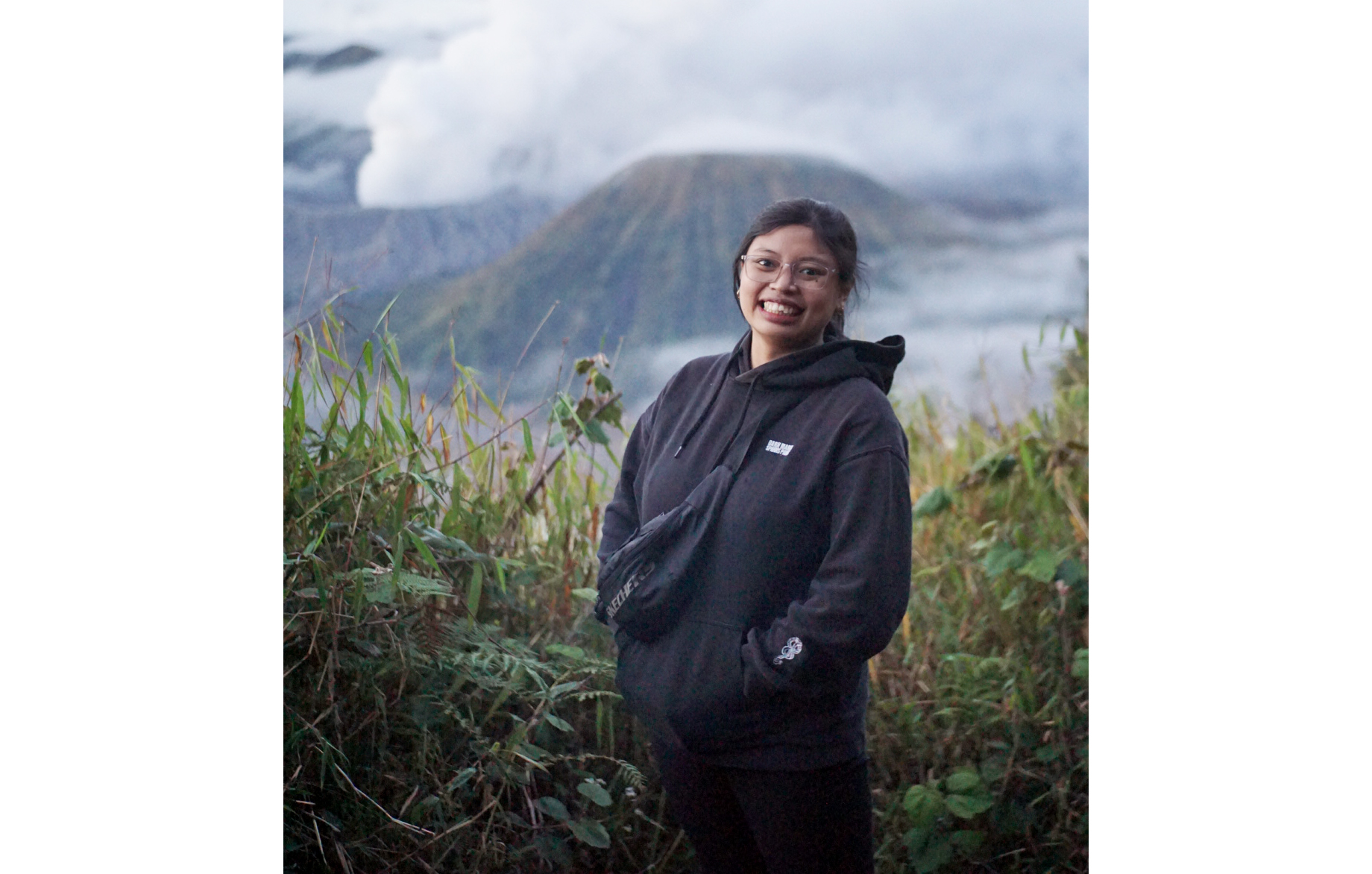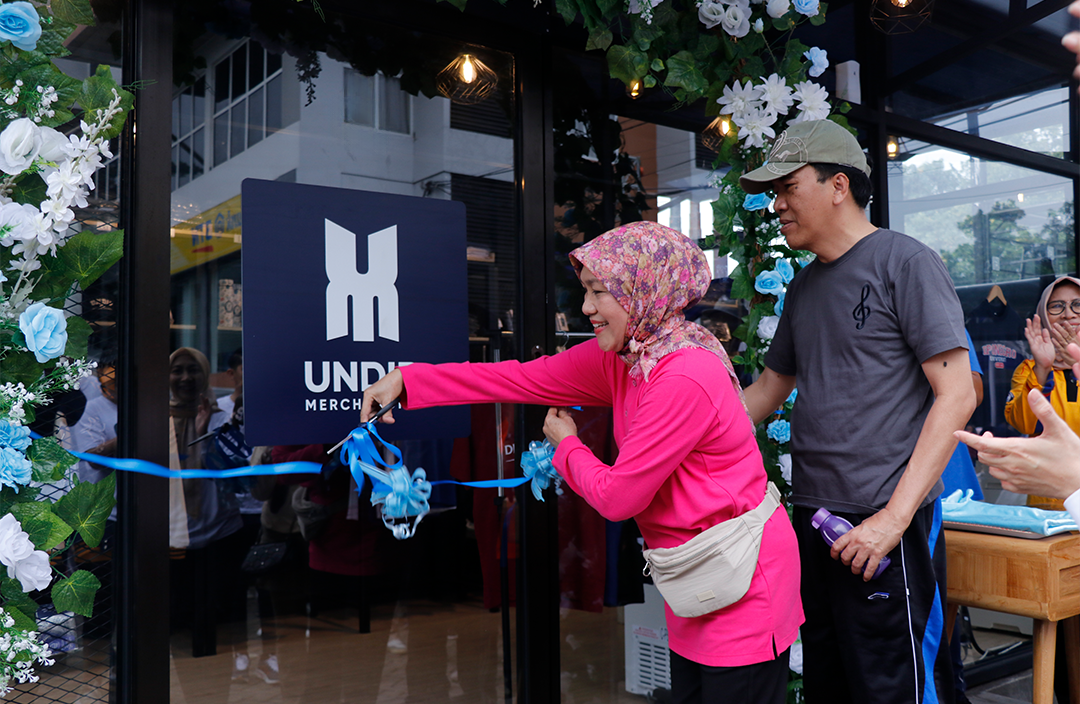Diponegoro University Vocational School Lecturer, Ropinov Saputro, S.E., M.M., became a resource person in the “New Entrepreneurial Growth Activities of the Department of Trade, Cooperatives and SMEs of Demak Regency”. The event, which was held in the Wedung Village Meeting Room, Demak Regency last week, was attended by around 25 participants from the MSMEs actors assisted by the Department of Trade, Cooperatives and SMEs of Demak Regency.
The event began with the presentation of material by resource persons regarding the importance of the type and form of business. Ropinov said that to be able to take care of business licensing properly, one must understand the form and type of MSMEs business itself, business licenses and products in order to protect MSMEs in the future. Ropinov Saputro explained that there are 2 licenses that must be owned by MSMEs actors, namely business licensing and product licensing. For a minimum business license, it is necessary to make a Business Certificate in the Village Office which can be obtained for free with a cover letter from the RT/RW. After MSMEs actors obtain the Business Certificate, they can make a personal NPWP at KPP Pratama.
The process that must be carried out by MSMEs in obtaining permits is continued by bringing the SKU and NPWP OP to the Department of Trade, Cooperatives and SMEs or DPMPTSP according to the type and form of MSMEs business. At the Department of Trade, Cooperatives and SMEs, MSMEs actors can ask for assistance in making Business Identification Numbers and Micro Small Business Permits. If they are familiar with technology, MSMEs actors can register their own Business Identification Numbers and Micro Small Business Permits through the OSS application. Ropinov Saputro explained that in business licensing (not products), Business Identification Numbers is like the ID card of a business, while Micro Small Business Permits is a business license to run the MSMEs. Ropinov also explained about the many facilities and assistance from the government provided for MSMEs which are already registered/licensed. For this reason, Ropinov asked MSMEs actors to immediately take care of business licensing and their products, in order to get their rights as MSMEs from the government.
In the next session, the resource person discussed licensing of MSMEs products such as PIRT, Halal Certification, and Brands. “After taking care of business licenses, then you need to take care of the products,” said Ropinov. This is done in order to protect and strengthen the MSMEs products against future competition. Ropinov gave an example of what would happen if an unlicensed MSMEs product had grown big and well-known, then there was a large company that produced the same product with the same name and even registered the brand name first. Thus the MSMEs product owners will actually lose control of the product and even have legal consequences. For this reason, according to him, MSMEs need to fortify themselves from the start with business licensing and business products. In this session, a participant asked “Sir, my product has not been registered as halal, but I have given it a halal label, is it okay?”. Ropinov explained that the MSMEs actors should register halal first, before putting a label on the product. It is to avoid punishment from MUI and the possibility of public perception of fraud when the product has grown large. The processing of halal licenses is also easy and free.
At the end of the session, Ropinov Saputro made a quiz with prizes for participants who could answer/explain the quiz questions. The quiz questions are the minimum licensing requirements that MSMEs must have, the costs incurred to manage brands for MSMEs that are already licensed, stands for DPMPTSP and the difference between PO and PT business forms. There were four MSMEs actors who emerged as quiz winners and received gifts from resource person.
At the end of the event, Ropinov asked MSMEs actors to fill out a digital questionnaire in order to measure the participants’ material absorption and participants’ satisfaction, as well as accommodate the aspirations of MSMEs training needed in the future. From the results of the questionnaire, it can be seen that the participants were satisfied with the presentation of the material by the resource persons and the participants were relatively able to understand the material well. The event closed with a group photo session.
